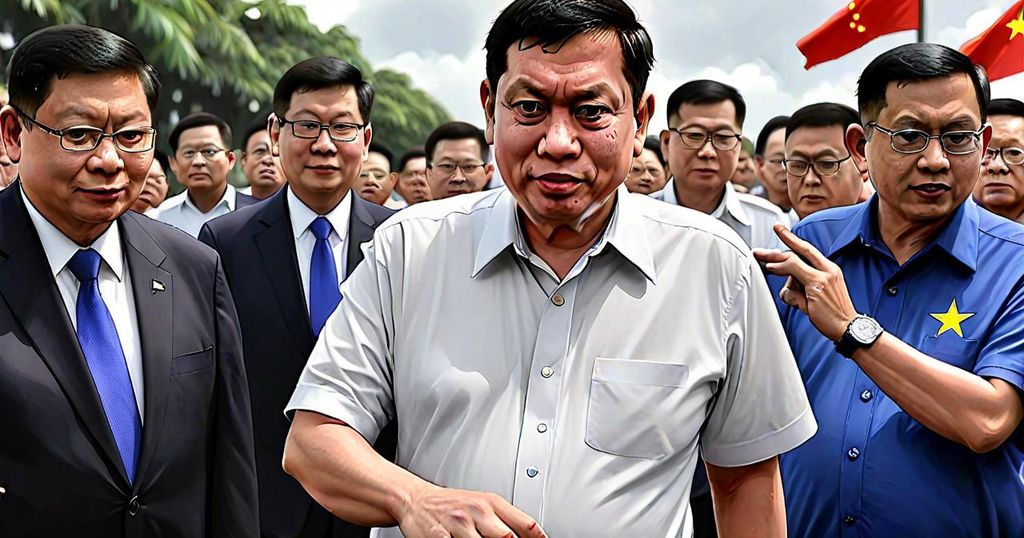In a recent diplomatic event in Kuala Lumpur, Chinese Premier Li Qiang visited to commemorate 50 years of diplomatic relations between Malaysia and China. This celebration highlighted the significance of Malaysia being the first Southeast Asian nation to recognize the People’s Republic of China. However, amidst these festivities, a less favorable encounter was unfolding between the Philippine navy and the Chinese coast guard in the South China Sea.
This maritime confrontation resulted in a Philippine sailor losing a thumb, prompting the United States Seventh Fleet to show support for the Philippines by appearing in Manila Bay. Tensions between the Philippines and China have been escalating due to disputes over the South China Sea, particularly China’s claim over the entire region, which encroaches upon the territorial waters of multiple countries, including Malaysia.
Despite efforts to resolve the issue through the International Court of Arbitration, with the Philippines achieving a favorable ruling, China refused to acknowledge the decision. With Rodrigo Duterte’s presidency, there was initial hope for a diplomatic solution, as he expressed willingness to set aside the arbitration ruling for the sake of negotiations with Beijing. However, these negotiations stalled, leading Duterte to terminate the discussions during the conclusion of his term in 2022. This shift in the Philippines’ approach to China was further evident when Ferdinand Marcos Jr. assumed the presidency and pivoted towards strengthening the country’s military alliance with the United States.
The current state of Sino-Philippine relations remains tense, with potential for further escalation as both countries navigate their strategic interests in the region. It is apparent that provoking a serious conflict that may involve China and the U.S. is an unwise course of action for both nations.
Amidst these tensions, it is evident that China has targeted the Philippines as a possible example of their influence over a Western democracy. This was emphasized by the recent resignation of Philippine Vice-President Sara Duterte from Marcos’ Cabinet, as she announced her family’s candidacy for seats in the Philippine Senate next year. This political development indicates that relations with China will continue to be a focal point in Philippine affairs.
In conclusion, the evolving dynamics between the Philippines and China underscore the complexities of international relations and the delicate balance of power in the Asia-Pacific region. As this situation continues to unfold, it is essential for all parties involved to approach the dispute with a commitment to peaceful and diplomatic resolutions.

Leave a Reply